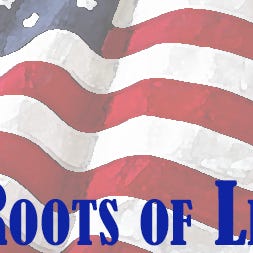There are rights, and there are rights. Then there is "far-right," which Nellie Bowles at Common Sense tells us has now supplanted "Republican" and "conservative" in the NPRNYT-curated leftist lexicon, but that's a bit for another day.
Over in the Netherlands, where farmers are engaging in massive protests against onerous environmental regulations that will put many of them out of business, legislators have decided that work-from-home (WFH) is such a neat thing that it's to be enshrined, along with a zillion other regulatory incursions into employer-employee interactions, as a "right."
I succumbed to temptation, made the rookie mistake of commenting in an open Internet forum, and asked,
Why must the government get involved in this one way or the other?
Amidst some likes and some "laughs," I got a few euro-statist types (not to be confused with eurotrash or EDM DJs who, like Sheriff Bart's grandmother, tend to be Dutch) coughing up a few hairballs about "rights."
One even tried to throw shade at America's latest exercises in Constitutionality:
Because things are run differently in The Netherlands. They like to ensure that the freedoms given to their citizens are embedded in their Constitutional rights.
The phrasing here is sloppy, but since it's an Internet comment and not Ulysses, I won't fuss too much.
I will fuss a little, though.
Some of us know that our "freedoms," i.e. rights and liberties, are inherent, not given to us by government. Our Constitution protects those rights and liberties from unjustified government intrusion, but it doesn't give them.
Working from home is not a right. In the relationship between employer and employee, it is a condition or perk that can be negotiated and re-negotiated as circumstances change. The Dutch parliament, however, decided to make this a "right." I scare-quote the word here because it is fundamentally different from the rights that people who understand liberty refer to.
The Internet serves up a concise explanation of these two types of rights:
A negative right restrains other persons or governments by limiting their actions toward or against the right holder. Positive rights provide the right holder with a claim against another person or the state for some good, service, or treatment.
Proponents of positive rights - what the rest of us would call entitlements or market distortions - like to conflate the two types. Muddying the stark difference piggybacks their agenda onto the eternal fight that liberty-lovers have against government's endless efforts to infringe them. This "two types of rights" mirrors the "two types of taxation" distinction I've offered on this page, a distinction the shade-thrower almost certainly doesn't make.
The rest of us must, however. The moment we accept that positive rights are even in the same city, let alone same ballpark, as negative rights, we lose our individual sovereignty. We subordinate ourselves to a government-managed collective, where others are empowered to take the fruit of our labor. Positive rights means that someone, somewhere, has something either taken from or required of him, by force.
My family ran a 24-hour restaurant for forty years. Across that span, the employment landscape changed dramatically, with government adding requirement upon requirement and mandate upon mandate. On top of all this lay an increasingly perilous legal blanket that changed every employment decision from "let's give this one a try, and if he or she doesn't work out, we part company" to "we need to have high confidence in every hire" hand-wringing. Cutting an underperformer loose became increasingly fraught, and we curtailed our "train them up" practice in favor of hunting and waiting for surer bets. That this inevitable outcome harmed the least skilled workers in the marketplace is routinely ignored by those who insist that government needs to do more and more to tip the scales toward employees. As is the case in the landlord-renter relationship, the scales are already heavily tipped toward employees.
The Dutch must be feeling quite progressive in turning an emergent perk into a mandate. They should be careful about patting themselves on the back too hard. If a job cannot be returned to in-office status, even part-time, then there's no benefit to hiring locally. A WFH mandate means that an employer may as well hire someone who's halfway around the world as someone who lives within commuting distance, no matter that the local employee might be more productive in person. This depletes local job markets exports the wages that'd otherwise flow into the local community.
There will then be clamor against the "outsourcing" that such mandates incentivized, and concomitant demands that government "do something" to remedy that which its actions prompted. A domino tips, and another is set up. The cycle of regulation, consequence, regulation will continue.
Anyone who's set up a domino chain knows the only way to stop a cascade is to remove some of them. We are cascading towards bureaucratic gridlock, making everything harder and more expensive, and dragging our economy down with excessive regulation. All that is driven by people who feel entitled to force others to behave as they wish. While WFH is still a negotiable perk here in the US, the Euro zone is useful for showing us what our domestic progressives might demand next.
Demand, never ask for, because that's how their world works:
Everything good must be mandated, and everything bad must be banned.
Donald Trump had the right of this one. In his first week in office, he signed an executive order requiring that for every one new regulation, two must be revoked. The Byzantine empire was crushed in part by over-regulation, and such is a drag on productivity and therefore on wealth-creation in America today. By playing the "rights" game, by mandating entitlements and casting them as rights, big-government types sow the seeds of our decline. We are already over-regulated, and it’s costing too many too much.
Just look at the Dutch farmers for a forecast of what’s next.
If you enjoy The Roots of Liberty, please subscribe (if you have already, thank you!), and please recommend the blog to your friends! While I share it as much as I can on social media, subscribing ensures you won't miss a post.
If you really like The Roots of Liberty and want to help keep it rolling, please consider becoming a paying subscriber here at Substack, or at a lighter level as contributor to the blog via Patreon.
Thank you for your support!
Yours in liberty,
Peter.






My mother-in-law ran a wholesale greenhouse for about 40 years. She did the paperwork and my father-in-law (Masters in horticulture from UGA) made the plants grow. Anyway….
Get her to talking and she describes exactly what you did about your family restaurant: dealing with employees and employee “drama.”
You hit this one out of the proverbial park!